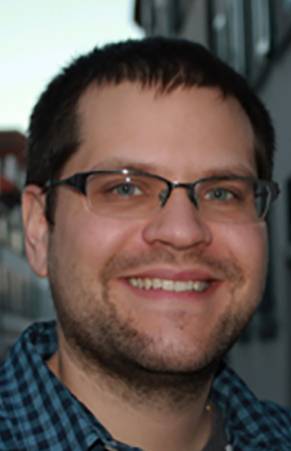Dr. Ryan Peterson
Assistant Professor
|
Contact Information Office: CHEM 314 Phone: (512) 245-0894 Fax: (512) 245-2374 email: rlp139@txstate.edu |
Educational Background
|
Honors and AwardsRuth L. Kirschstein National Service Award (F32) 2015-2015 |
|
Areas of Interest
|
|
Research in the Peterson Group
The research in the Peterson lab is focused of copper biochemistry and cellular biology. Copper is an essential micronutrient and is a common cofactor found in the active site of many enzymes. Copper metalloenzyme are most commonly known for their roles in electron transfer processes, the activation of dioxygen and reactive oxygen species (ROS) metabolism. The rich family of copper oxidoreductase enzymes can catalyze a wide range of chemical reactions. Of particular interest to the Peterson group are the C-H activating monooxygenases such as particulate methane monooxygenase (pMMO) responsible for biological methane to methanol conversion, lytic polysaccharide monooxygenases (LPMOs) which catalyze the oxidative depolymerization of biological polymers including starch, cellulose, & chitin, as well as the Cu-superoxide dismutase (Cu-SOD) family of enzymes which are implicated in cell signaling, cancer, and microbial pathogenesis.
The primary projects in the Peterson Lab are:
- Characterizing new chemical activity profiles of natural and evolved copper metalloenzyme systems.
- Describing the metalloproteome of the oomycete aquatic pathogen Saprolegia parasitica
Our lab uses E.coli and yeast (P. pastoris, C. albicans, and S. cerevisiae) as model organisms for protein expression and genetic screening protocols.
The Peterson group is always open to motivated and passionate researchers. Interested individuals please send a copy of your CV/resume and a brief description of your research aspirations to rlp139@txstate.edu

